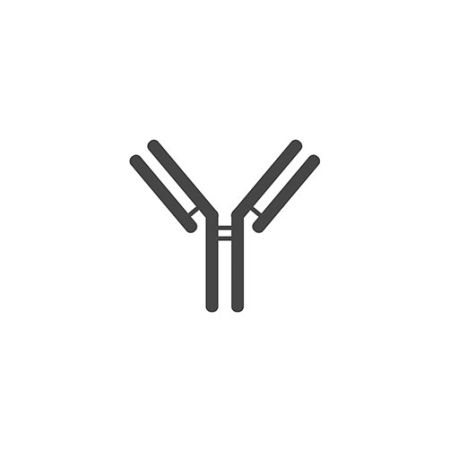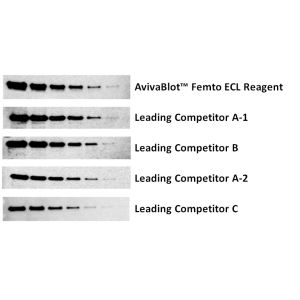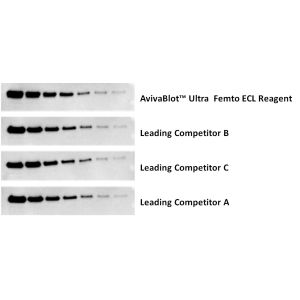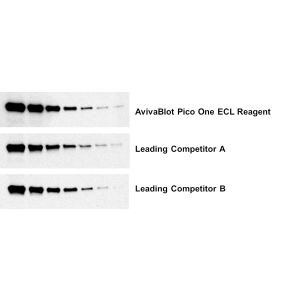Human CD13 Antibody : PE
Cat# OASB02606
Size : 25tests
Brand : Aviva Systems Biology
| Datasheets/Manuals | Printable datasheet for Human CD13 Antibody : PE (OASB02606) |
|---|
| Tested Species Reactivity | Human |
|---|---|
| Predicted Species Reactivity | Human |
| Product Format | Liquid. Phosphate buffered saline containing 0.1% sodium azide and a stabilizer |
| Clonality | Monoclonal |
| Host | Mouse |
| Conjugation | R-PE |
| Application | FC |
| Additional Information | Description: CD13, also known as aminopeptidase N, is a 150 kDa type II integral membrane glycoprotein. It is expressed on granulocytes, monocytes and their precursors, and on mast cells. CD13 is a zinc-binding metalloprotease that is involved in cell surface antigen presentation via its digestion of many MHC-bound regulatory peptides. |
| Reconstitution and Storage | Store at 2-8C |
| Immunogen | Osteoclasts from osteoclastomas |
| Concentration | Lot specific |
| Specificity | CD13 |
| Gene Symbol | ANPEP |
|---|---|
| Gene Full Name | alanyl aminopeptidase, membrane |
| Alias Symbols | APN, CD13, LAP1, P150, PEPN, GP150 |
| NCBI Gene Id | 290 |
| Protein Name | aminopeptidase N |
| Description of Target | Aminopeptidase N is located in the small-intestinal and renal microvillar membrane, and also in other plasma membranes. In the small intestine aminopeptidase N plays a role in the final digestion of peptides generated from hydrolysis of proteins by gastric and pancreatic proteases. Its function in proximal tubular epithelial cells and other cell types is less clear. The large extracellular carboxyterminal domain contains a pentapeptide consensus sequence characteristic of members of the zinc-binding metalloproteinase superfamily. Sequence comparisons with known enzymes of this class showed that CD13 and aminopeptidase N are identical. The latter enzyme was thought to be involved in the metabolism of regulatory peptides by diverse cell types, including small intestinal and renal tubular epithelial cells, macrophages, granulocytes, and synaptic membranes from the CNS. Human aminopeptidase N is a receptor for one strain of human coronavirus that is an important cause of upper respiratory tract infections. Defects in this gene appear to be a cause of various types of leukemia or lymphoma. |
| Uniprot ID | P15144 |
| Protein Accession # | NP_001141.2 |
| Nucleotide Accession # | NM_001150.2 |







